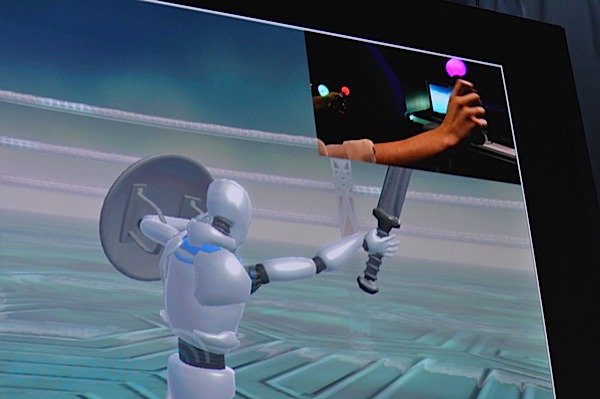Now that each of the big three labels have their own motion-sensing control schemes to get behind, opinions have been pouring in from all parts of the industry and all points of view on the current controller climate. Two dramatically opposed positions are those of Nintendo of America head Reggie Fils-Aime, who thinks both Sony and Microsoft have just “looked over their shoulder at Nintendo,” and Quantic Dream founder David Cage, who finds the entire concept as a detrimental step for the industry.
With Nintendo’s blockbuster success with the Wii and its motion-sensitive control appartus, it’s easy to see how its multi-year lead in the field could make the sudden appearance of motion controls (especially the extremely similar device from Sony) at this year’s E3 could be seen as trying to mimick the system’s lucrative gimmick. “My take on it is that they are now seeing the opportunity that we saw. What they have shown and discussed inherently is not new news to us,” Reggie explains in a recent interview, “…we have been in this business for over 25 years. We have worked with a range of input approaches. We’ve worked with the range of mechanisms to drive immersion into the gaming experience. There is a reason why on a DS you get that little click when you press a button. There is a reason that it was important to have a microphone in the Wii Remote. So for us what we see is two competitors who are looking over their shoulder at what we’ve been able to do, and are trying to participate.”

Reggie continued to paint a compartive picture of the controller market, “Interestingly, our next advance in precision control [the Wii MotionPlus peripheral], launches on Monday. I’m not sure when their products will come to the market, but I can tell you by the time that happens, we will have to continue to move on, to drive more and more immersion on the part of the consumer.” On how all this will be reflected in the future of the industry, Reggie rounded out by saying, “… from our perspective we always have to be pushing the envelope in ways that we believe benefit our strategy, which is driving more and more people into this category, and that’s what the Wii Vitality Sensor is all about. It’s all about pushing the envelope as to what can create compelling content, and an entertaining experience in ways that haven’t been done before. Because to date that consumer, who hasn’t yet been compelled with the first-person shooter, or an action side-scrolling adventure, or a fitness game may be compelled with something that we do with the Vitality Sensor.”


While Reggie and Nintendo at largefind motion controls to be vital to the future, David Cage, founder of Heavy Rain developer Quantic Dream, sees the competing schemes as something entirely different. In an unrelated interview to Reggie, Cage was quoted as saying, “I’m not sure all people want to play jumping and running in front of the television, because I think some people just want to relax and just play, enjoy and experience.” In terms of the specific companies and their recent activity, Cage mused, “It shows Microsoft wants to go the Nintendo way, probably, go casual, compete with Wii Fit, and there’s nothing wrong about it – there is a market for casual gamers. But this is definitely not the direction I would like this industry to go, because I think it should go in the direction of movies – more creativity, more new ideas, more authors – rather than going in the direction of toys. And from a technical point of view I must admit I’m still slightly sceptical about what they’ve shown.”
Between the two corporate heads lies the breadth of opinion on the now massive industry that is motion control-related merchandise, and where it could relate and lead the video game industry in the future. It can be assuredly stated that it’s not likely that Heavy Rain will be arriving on the Wii anytime soon.

Wow… let the mud slinging begin.